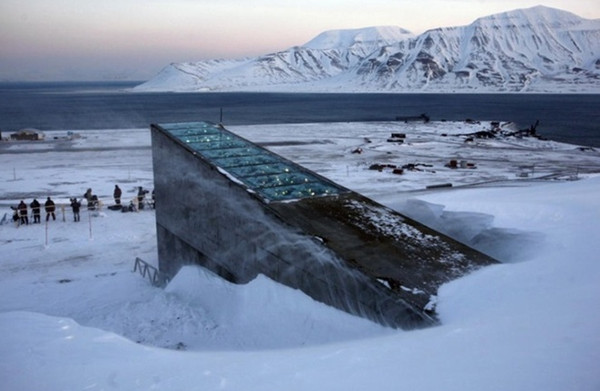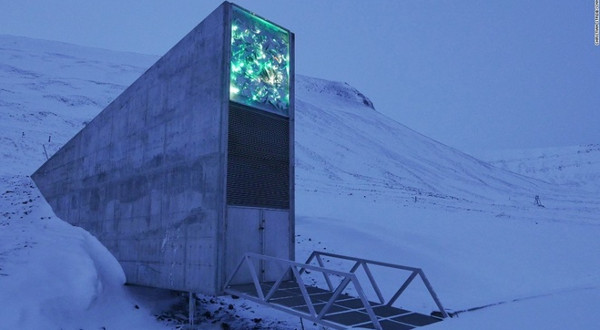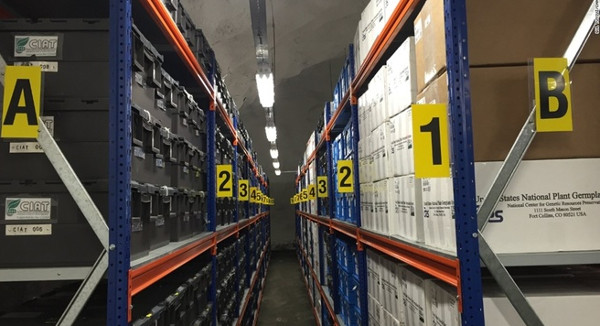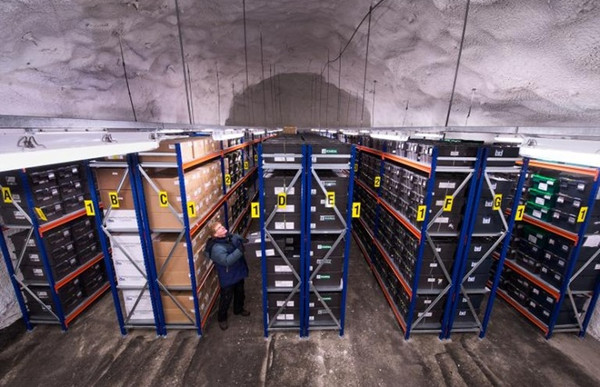Casserole seed pit under the Arctic ice
A global seed tunnel built in the Arctic to protect the world's plants from extinction due to climate change, natural disasters, and war.
The apocalyptic tunnel protects plant seeds in the world

According to CNN, millions of seeds are being stored in an underground cellar, deep beneath the permafrost in Svalbard, between Norway and the Arctic. This area is outside the sphere of war and sea level rise, so it can protect seeds from environmental disasters. In addition, Svalbard has a stable geological element, regular scheduled flights, making it relatively accessible. "The underground is built for human survival. It is like a sacred place. Every time I come here, I feel like I am standing in the church. This place makes us stop and thinking , " said Michael Koch of Trust Crop.

In the gloomy, dim environment of the Arctic autumn, the gateway into the underground tunnel is like a precious jewel protruding from the snow and ice.It is constructed of angled concrete.At the end of the tunnel is a shining, massive metal door, behind it is the key to protecting humanity in a "post-apocalyptic" world.

The underground storage contains 837,931 specimens, estimated at 556 million seeds, stored at a constant temperature of -18 ° C to preserve them from spoilage. The permafrost formed a natural refrigerator. Even without electricity, the temperature in the tunnel will gradually stabilize at -8 ° C, low enough to maintain seed quality for decades.
The seeds will be carefully packed into a sealed, three-layer thick aluminum bag and sealed into the bin, before being transported to the underground from Nigeria, India, the United States, Peru and almost every other country. Earth.

In the underground cellar, many of the 2,291 stacked barrels are made of gray or black plastic.They are tagged and coded to identify the gene bank where the seed is sent.However, a few boxes on metal shelves stand out in the middle made of wood, with colored labels, originating from Korea.

The function of the underground tunnel is like a safe deposit to the bank.After being placed inside, the bins cannot be opened or removed by anyone, other than the agency that sent the seed until necessary.

Earlier this month, the seed inside the so-called "Apocalyptic Underground" was first opened and removed some seeds as a result of the Syrian war.Scientists from the International Center for Agricultural Research in the Dry Areas have had to flee their bases in Aleppo, Syria to Lebanon.They demanded to reclaim a lot of seeds that had been previously sent for planting, continuing with the important research they have conducted for decades.

Varieties of seeds sent to underground storage are very diverse, mainly food crops, such as: corn, wheat, barley, lettuce, potatoes.If a species is extinct in the wild due to drought, war, flood, then the genetic trait in the seed will become very important.Because we can restore this species, a typical example is the native rice species in Australia that is resistant to pests.
- Humanity's 'anti-Apocalyptic' cellar is difficult to survive until Apocalypse
- The apocalyptic tunnel was added with a large number of seeds
- Interesting facts about animals living in the Arctic
- Monkey cracks how the seed shell
- The cellar contains anti-apocalyptic seeds flooded by melting ice
- Arctic sea ice area is at a record low
- Every second 14,000 tons of water flows into the sea because the Arctic ice melts
- The volume of ice in the Arctic drops to a record low
- The Arctic lost three times as much ice as Belgium every day
- The extraordinary journey of the Arctic fox
- Anti-apocalyptic tunnel holds precious books in Norway
- Arctic ice is melting record fast
 Norway built the world's tallest wooden tower
Norway built the world's tallest wooden tower Kremlin
Kremlin Ashurbanipal: The oldest royal library in the world
Ashurbanipal: The oldest royal library in the world Decoding the thousand-year construction of Qin Shihuang shocked the world
Decoding the thousand-year construction of Qin Shihuang shocked the world